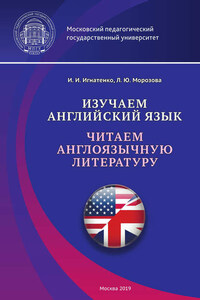1. How do you use language in your life?
When we start thinking about what defines us as human beings, and we ask people around us that question, most likely among the first answers that we will get is going to be language or languages. The ability to learn and use languages is our most prized human ability. It probably played a decisive role in our evolving as a species. Also unique, and very useful, is our ability to learn a second language, a third language, a fourth language. Not our mother tongue that we grew up speaking.
Not just lingualism, which would be the ability to acquire and use a language, but multilingualism, the ability to learn and use many languages throughout our lifetime, is another fundamental dimension of the human condition. Indeed, available data indicate that there are more bilinguals in this world than monolingual individuals.
What do we know when we know language?
“If you pose the question of ‘What defines us as human beings?’ to people around you, most likely, among the first answers that you get, they will mention ‘language’ or ‘languages’.
The ability to produce and understand language in order to satisfy our communication needs is our most prized human ability. It is a fundamentally human capacity that relies on unique brain circuitry. It has probably played a decisive role in our evolving as a species…”
Our examples here will be from English, but think about the principles that apply to other languages, the languages you know. Everybody has heard a finite number of sentences in their life, but is capable of producing an infinite amount of sentences. For example, «The sun is shining» is an acceptable sentence in English, while «The sun shining is» does not seem like a good sentence, although we probably understand what it means. The ability of the speaker is not only to produce an infinite number of sentences, but also to distinguish them from the ones that are not acceptable.
This is true not only of sentences, but of larger and smaller units of language, such as phrases or conversations. Since the seminal work of the American linguist Noam Chomsky in the ‘50s transformed linguistics as a science, linguists have come to study human language as another attribute of our species. This research tradition proposes that the ability to speak language– is just one natural product, just like our ability to see and to walk– and it is because we are human beings that we have this ability to speak. What is language acquisition? What do we know when we know language? Learners have to be surrounded by linguistic input.
And that can be provided by parents, siblings, peers, in general the linguistic community of the learner, no matter whether the learner is a child or a second language learner. For example, a second language learner of Mandarin Chinese may be exposed to the language in a classroom, but may improve when she goes on a visit or study abroad to China. The point is that there is nothing genetic about language, and it is the language acquisition ability that is genetic. But the specific languages come from the inputs that we are exposed to throughout our life times.
Questions:
1. How far do you agree that our ability to learn languages is a genetic or a natural part of being human?
2. What other kinds of knowledge does knowing a language give us?
2. Origin and development of English
The history of the English language really started with the arrival of three Germanic tribes who invaded Britain during the 5th century AD. These tribes, the Angles, the Saxons and the Jutes, crossed the North Sea from what today is Denmark and northern Germany. At that time the inhabitants of Britain spoke a Celtic language. But most of the Celtic speakers were pushed west and north by the invaders – mainly into what is now Wales, Scotland and Ireland. The Angles came from Englaland and their language was called Englisc – from which the words England and English are derived.
Old English (450–1100 AD). The invading Germanic tribes spoke similar languages, which in Britain developed into what we now call Old English. Old English did not sound or look like English today. Native English speakers now would have great difficulty understanding Old English. Nevertheless, about half of the most commonly used words in Modern English have Old English roots. The words BE, STRONG and WATER, for example, derive from Old English. Old English was spoken until around 1100.
Middle English (1100–1500). In 1066 William the Conqueror, the Duke of Normandy (part of modern France), invaded and conquered England. The new conquerors (called the Normans) brought with them a kind of French, which became the language of the Royal Court, and the ruling and business classes. For a period there was a kind of linguistic class division, where the lower classes spoke English and the upper classes spoke French. In the 14th century English became dominant in Britain again, but with many French words added. This language is called Middle English. It was the language of the great poet Chaucer (c1340–1400), but it would still be difficult for native English speakers to understand today.








